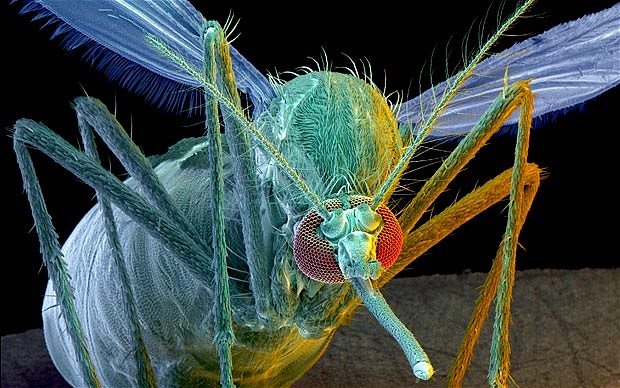A biotech company released millions of genetically-modified Aedes aegypti mosquitoes in Brazil in an effort to reduce the number of disease-carrying mosquitoes.
New findings suggest the genetically-modified insects are passing some genes to the native ones.

From 2013 to 2015, an English biotech company released millions of genetically modified mosquitoes into neighborhoods in Jacobina, Brazil, in an effort to reduce the number of native disease-carrying mosquitoes. Already then, I was very shocked about this decision and indicated that introducing genetically modified organisms may create mutant mosquitoes.
And as stated in a new research paper, some of the gene-edited mosquitoes passed on their genes to the native insects, fueling concerns in the scientific community that they created a more robust hybrid species.
Considered the world’s deadliest animal, mosquitoes spread a plethora of diseases, including Zika virus, dengue fever, yellow fever and West Nile virus.
To try to rid the world of some of these disease transmitters, a biotech company called Oxitec released around 450,000 genetically modified male Aedes aegypti mosquitoes into Jacobina each week for 27 months. These mosquitoes were altered such that they carried a “lethal gene.”
Once released, these ticking bombs were supposed to flit along and mate with females (the sex that bites humans) and then die, but not before they passed their lethal genes to similarly doomed offspring.
In the lab, scientists had found that about 3% of the females that mated with the genetically modified males would produce offspring. But even the small number of offspring that survived were weak and unable to produce offspring of their own.
Mutant Mosquitoes
But now, a group of researchers not involved with Oxitec is raising questions as to whether this method went as planned.
This method has successfully reduced native mosquito populations in Brazil by up to 85%.
BUT, they found that some of the genes from the genetically modified mosquitoes had transferred to the native population. In other words, some of the offspring had survived and were strong enough to reproduce.
This new population is a hybrid of Brazilian mosquitoes and the genetically modified mosquitoes that were created from strains in Cuba and Mexico.
“The claim was that genes from the release strain would not get into the general population because offspring would die,” said senior author Jeffrey Powell “That obviously was not what happened.“
However, there is no known health risk to humans that might come from these hybrids, he said. “But it is the unanticipated outcome that is concerning,” Powell added.
In fact, the genes that were passed on weren’t the tweaked genes that were designed to kill and tag the mosquitoes but rather genes from the strains in Cuba and Mexico. The researchers also noted that this mixing of genes might have led to a “more robust population,” perhaps one that would be better able to resist insecticides or transmit diseases..
Of course the company didn’t like the latest speculation. Of course not!
Gene modification is dangerous. It’s creating mutant mosquitoes… And mad scientists want to try their technology on humans… This is a really bad idea… What about mutant humans? Do you think they already exist?













Brazilian entomologists are also responsible for creating killer bees which have killed many people and animals throughout the world. Thanks. Now please stay away from any insect experiments.
Did they not watch Jurassic Park? Idiots.